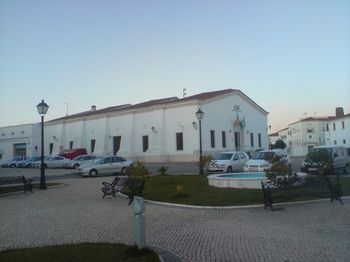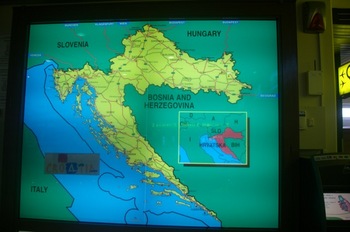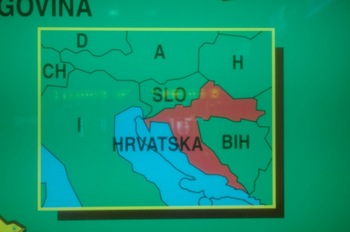We are developing the social individualist meta-context for the future. From the very serious to the extremely frivolous... lets see what is on the mind of the Samizdata people.
Samizdata, derived from Samizdat /n. - a system of clandestine publication of banned literature in the USSR [Russ.,= self-publishing house]
|
The usual explanation for the troubles now afflicting the EU that is doing the rounds now is that the Greeks and Spaniards have recently been behaving even more like Greeks and Spaniards than they usually do. But Helen Szamuely offers an alternative explanation for the EU’s current woes. Germans, she observes, are finally reverting to being regular Germans.
Having quoted a Der Spiegel article about how German Chancellor Angela Merkel is now mysteriously unwillingly to bow to France in the manner of her predecessors since WW2, Helen says this:
This fits with the point I have made over and over again: the EU is predicated on a guilty and subservient Germany. With time going on and new generations, who cannot even recall the war, appear on the scene (and in Merkel’s case there is the added point of growing up under the Communist system) guilt and subservience can no longer be relied on and the Franco-German motor, which presupposed French supremacy is now sputtering. In many ways, that is more important than the Greek or Spanish fiscal crises.
And that fits a point that I have made over and over again, which is that when it comes to predicting the future, there is one kind of thing that one can say with certainty, when all else is guesswork. Statements of this kind are always going to be true: in twenty years time, you and I and everyone else will either be twenty years older, and influencing the world in the way that people twenty years older that all of us are likely to influence the world (in my case hardly at all), or dead.
All manner of interesting suggestions about the relationship between events and later events can be derived from this kind of observation, including even events which have yet to happen, as Helen Szamuely’s own earlier versions of the above presumably suggest. Such speculations are not all going to be right. But they can be very interesting and suggestive.
Historically, one of my favourite such twinning of two events is: Battle of Crecy 1346, Peasants Revolt 1381. A great many of those “peasants”, including their leaders, were the veterans of earlier continental wars.
Now? Well, can it be coincidence that our current financial turmoil is happening just when, for the first time since it happened, hardly anyone is still alive and counting for anything who remembers the previous bout of such financial turbulence, that started erupting around 1929?
I commend this fascinating article to those who have not yet come across it – A Hidden History of Evil:
Why Doesn’t Anyone Care About the Unread Soviet Archives?
The archives contain “unpublished, untranslated, top-secret Kremlin documents, mostly dating from the close of the Cold War”, yet their guardian “can’t get anyone to house them in a reputable library, publish them, or fund their translation.” Amongst numerous other tidbits, there is some very interesting stuff about Soviet dealings with François Mitterrand, Neil Kinnock, and several past and present “European Project”/EU bigwigs.
(From the excellent Michael Totten, who’s doing a fine job of holding the fort over at Instapundit)
As recounted here in a justifiably passionate editorial about the European Union’s plans to beat up the City of London, we are reminded that, whatever the vote might have been in the May general election, that with qualified majority voting in the EU, states can – and do – gang up to put a particular country’s economic affairs in grave difficulty.
Paris and Frankfurt have, in particular, resented the prosperity of the City. And as the recent travails of the euro show, there is precious little to be said for the supposedly wiser governnance of the euro zone. There was a certain amount of gloating after the US and UK got hit by the sub-prime mortgage meltdown (some of that gloating might have been justified) but it is quite clear that the rigidities of the euro zone remain a severe problem.
Why we are in the EU again?
The $146 billion bailout package approved this weekend for Greece is advertised as a move to “stop the worst crisis in the [euro]’s 11-year history,” but it is having exactly the opposite effect.
…
So you have politicians defying the will of the voters to pour more water into a leaky bucket; transnational economic planners destroying a currency in order to save it; markets responding to those actions with predictable horror; and the few recipients of all the largesse too dumb to say “Thank you.” This is apparently what EU stability looks like.
– The start and the finish (I recommend the stuff in between as well) of a piece by Tim Cavanaugh about the Greek Bailout
I’m watching the news, in particular the news that the airplanes will be allowed to fly again over Britain. Thank goodness.
Inevitably, a professorial head popped up – Professor Hayward was the name, I think – to argue that what had been revealed was that there were problems with who was in charge. Yes, it must have been the same Professor Hayward as the one quoted in this story. He described the muddle of different jurisdictions – with one Euro-quango governing this, and another that, and France and the UK actually, to quite a large extent – sniff – controlling their own airspace. I don’t know what the Professor really thinks about this, but he or the TV editors made it sound like he thought there ought to be one Euro-authority in charge of everything. There should be, that is to say, a Single European Sky. Recent events, he said, highlighted the fact that there is a muddle of different jurisdictions, when it comes to whether airplanes can fly or not.
And a good thing too. Thanks to that muddle of different European jurisdictions, some planes have been flying over Europe, including one KLM plane which this afternoon flew over London. And the ban is melting away, for all the world as if Europe was still governed by a gaggle of sovereign states, each in charge of its own affairs. No planes have so far dropped out the sky. They didn’t put it like that, but if a plane has fallen out of the sky, they would definitely have said. As more planes have taken to the air, the claim that flying in them is a death sentence becomes harder and harder to accept.
Had European airspace been commanded by a single despot, as will surely be argued by many others besides that Professor in the next few days and weeks, this disaster might have lingered on indefinitely, at a cost (and never let it be forgotten that economic disruption on this scale is, for quite a large number of severely stressed and severely impoverished, severely financially ruined people, a matter of life and death) which would have defied calculation.
Now Paxman is talking about pressure from “vested interests”. Airlines wanting to stay in business, in other words, airlines who have become convinced that this scare has been massively overdone. Airlines who prefer to pay attention to evidence of what is actually happening in the sky, rather than trusting mere computer models. Computer models are getting a rather bad name these day, aren’t they?
If, now that the ban is being lifted, planes do start crashing for mysterious reasons, or if the aircraft maintenance people start to detect the damage that they now say is non-existent in the planes that have already flown, then fine. Ground the planes again. But I’d be amazed if that happened. Airlines know better than anyone that plane crashes must be avoided at almost any cost. It is clear that they think that the risk of crashes now is negligible, for the reasons alluded to in this earlier posting here.
I hope that Simon Jenkins’s phrase, health and safety Armageddon, catches on. My thanks to EU Referendum for the link to that piece, and in general for being all over this story.
But, note that North is today defending the Met Office. North implies that the problem is that muddle of jurisdictions, which has enabled the European commission to evade its responsibility for this mess and heep all the blame on the Met Office. I see what he means, of course I do. But which would you prefer? A muddle of jurisdictions, with all the inevitable buck passing and mutual recrimination, plus pressure from vested interests, and from politicians trying to get re-elected, and derision from bloggers, and by and by from the mainstream media, in short the semblance of a still-free society? Or a pristine tyranny, willing and able to be totally wrong, indefinitely, rather than admit to the embarrassment of being wrong? Widespread panic for a few days? Or, total panic for weeks or months on end, that refuses even to admit that this was what it was? I know which I prefer.
Yesterday, upon arriving at Pula airport in Croatia, I found a helpful map on one of the walls, showing the highlights of the country, and with a useful inset showing where Croatia fits in with other nearby countries.
I suppose they could have sent explorers to discover what actually exists in that uncharted wilderness to the east of Zagreb and Bosnia, but I suspect it was not worth it.
People sometimes ask me why I travel, and how I choose where I travel to. Let me give a recent example.
 I have recently been making an effort to fill in gaps in my knowledge of modern European history. In particular, I have been attempting to learn about the Napoleonic Wars, and the subsequent growth of Prussia and its evolution into the German empire. The remnants of Europe’s 20th century history are obvious and everywhere, but the remnants of earlier upheavals are equally there if you look for them. I have a certain penchant for looking at odd and peculiar remnants of the past, sometimes big, sometimes small. When in Poland late last year, for instance, I found myself visiting the remains of the mausoleum of Prussian General Gebhard Leberecht von Blücher, victor alongside the Duke of Wellington at the Battle of Waterloo. This was desecrated by the Red Army in the closing days of the Second World War – Russian soldiers used the general’s skull for a game of football when doing so – and is not particularly easy to find these days, as Poland does not exactly advertise its presence, but it is there if you look for it.
And when reading about those same wars, I discovered an interesting fact: that there is an outstanding territorial dispute between Spain and Portugal from the same era. The river Guadiana forms the approximate border between Spain and Southern Portugal, although there are significant pieces of land that are east of the river and nonetheless part of Portugal. There used to be more. The town of Olivenza (in Spanish) / Olivença (in Portuguese) was Portuguese from the thirteenth century until the nineteenth (full details here). However, as Portugal allied itself with England in 1373 and the Spanish kingdoms were more often allied with France or other continental European powers, European wars along with local rivalries meant that the border was often fortified and there were various military skirmishes in the area over the centuries. For instance, the Ajuda Bridge across the Guadiana (which like many bridges in rural Portugal is often claimed to be Roman but which was actually built in the 16th century) connecting Olivença to the nearby Portuguese town of Elvas, was destroyed in 1709 during the War of Spanish Succession. Lack of resources, continuing instability, and the devastating earthquake of 1755 prevented it from being rebuilt before Olivença fell to the Spanish in the War of the Oranges in 1801, and was ceded to Spain in the Treaty of Badajoz that same year.
One article of that treaty stated that if either side breached any article of the treaty, the whole treaty was void. Spain and Portugal went to war again in the Peninsular War of 1807, at which point Portugal claimed that the Treaty of Badajoz had been abrogated as a consequence. Upon the final defeat of Napoleon, Britain promised to aid Portugal in achieving the return of Olivença, and a clause was inserted in the Treaty of Vienna in which it was agreed that the powers would “endeavour with the mightiest conciliatory effort to return Olivenza to Portuguese authority”. After a bit of foot dragging, Spain signed the treaty.
 And that is where we are today. Spain occupies Olivenza to this day, stating that agreeing to “endeavour with the mightiest conciliatory effort” is not the same as agreeing to do something, and claiming that the Treaty of Badajoz is still valid. Portugal rolls its eyes at this, and states that the Peninsular War makes the Treaty of Badajoz null and void anyway, plus Spain agreed to give Olivença back under the treaty of Vienna. The Napoleonic wars apparently continue on this small corner of the Iberian Peninsula, just as the Franco-Prussian War apparently still goes on in Liechtenstein. In practice, nobody gets too worked up about this, as modern relations between the two countries are good.
Before Christmas, I learned all this and I thought it was kind of interesting. In addition I was able to get a very cheap airfare to Faro on the Algarve and a cheap car rental when I arrived there. Plus the forecast in London was for heavy snow, and I wanted to get out of the cold for a few days. Plus I always have a lovely time when I go to Portugal – especially when I drive into the interior. There is a certain cliche of rural France (much represented in French cinema and much parodied in Stella Artois commercials) that seems largely gone when one visits rural France. One still finds it rather more in rural Portugal, and I find this rather charming.
So, the plan was set. I would fly in, have a look at the coast, and drive up the Portuguese side of the border, roughly following the Guadiana river, ultimately ending up at Olivenza. I would look for lingering signs of Portugueseness and resentment from the Napoleonic wars. If I had time, I might then head for the coast near Lisbon, look for the location used in a music video of a song by a Romanian pop princess that I had viewed in a bar in Transylvania a couple of weeks earlier, for no particular reason other than it reminded me a little of home. → Continue reading: Do or not do. There is no endeavour with the mightiest conciliatory effort
A number of governments – the UK and German – have used information stolen from a Liechtenstein bank in a bid to hunt after alleged tax evaders. And now, there is a story that data has been stolen from HSBC Private Bank (Suisse), divulging data on scores of French clients. The French government, you will not be surprised to learn, gentle reader, is probably not all that shy of using stolen material. It will be interesting to see what happens to such data. Here is another news report.
As I keep saying in my defence of tax havens, bank secrecy is not really about allowing dodgy folk to squirrel away ill-gotten gains, which is the usual image presented these days. (That is not to say that such secrecy has not been abused in the past). In past ages, groups fleeing persecution – such as Jews from Nazi-controlled Europe – availed themselves of banking secrecy in order to protect what was left of that wealth. We should not be so naive as to imagine that even without a repeat of such horrors, there is not a need for client privacy to be rigorously enforced. It is monstrous that governments should use stolen material in this fashion, but then, as the founding editor of this site likes to remind us, the state is not your friend.
Timothy Garton Ash, writing in the Guardian displays the jarring sensibilities that comes inevitability from holding the sort of fuzzy authoritarian statist views that prevail these days. On the subject of the Swiss ban on new minaret construction…
That is to put the clock of religious toleration back 300 years, to a time when even protestants in Catholic France could not worship in public. Of course, planning regulations and the local townscape must be respected. Architectural tact and syncretic innovation are desirable, as brilliantly exemplified in the new buildings of the Oxford Centre for Islamic Studies or Boston’s Islamic Cultural Centre. But this vote was not about urban planning.
Actually it is about ‘urban planning’, just not for the sort of reasons the writer approves of.
But what makes me laugh is that Ash has no problem whatsoever using the force of the state to make people build in ways he approves of. It is clearly axiomatic to him that the state gets to have planning regulations over what you can build on your own private property, even over mere aesthetic issues (i.e. he likes the fact the political trumps the social completely when it comes to your property). He just wants what people like him thinks is ‘desirable’ to be allowed.
Yet somehow when that political process he accepts as axiomatic produces something he does not think is ‘desirable’ to his Guardianista sensibilities, I doubt it occur to him that maybe it is his acceptance of people exerting force backed political power over others in pretty much every aspect of life where the problem lies.
Muslims in Switzerland wishing to build minarets on buildings dedicated to praising the words of their mass murdering Dark Ages warlord only have the problem they now face because people like Timothy Garton Ash think it is perfectly alright that the state to be allowed to ‘plan’ what people can do on their own property.
The result is in: the Swiss public has voted in favour of a proposition prohibiting the construction of any new minarets in their country. Note: this is not a ban on Islam or even the construction of mosques, just minarets.
Aside from all the obvious reprecussions (which are not hard to predict), it does occur to me that this raises an interesting and very thorny questions for libertarians because this is not a straightforward case of state repression. In fact, it appears that both the Swiss government and parliament were firmly opposed to the proposition which has been put to the public by referendum following a petition which was endorsed by a sufficient number of Swiss citizens. The Swiss state urged the public to reject the proposition but, having lost, is now forced, reluctantly, to change the constitution to enact the minaret ban into Swiss law. This was ground-up not top-down.
When a government says no to freedom of religious worship, it is easy to mount our high horses and ride forth bearing gleaming swords of indignation. But when a clear majority of the demos say no, well, then it gets rather harder. At least, it does for me.
It may seem late in the day, but those fine people at the Taxpayers’ Alliance are putting around a petition urging support for a referendum on the Lisbon Treaty, aka the European Constitution. The Czech Republic is, at present, the last country to stand in the way of what will be a dangerous acceleration in the move of the EU towards the status of being a complete state in its own right.
Here is the link for those who are interested.
As an aside, I see that the TPA has spawned a leftist website using almost exactly the same URL. The TPA, is, according to this outfit, an evil, right-wing (booo!) organisation that er, wants to do terrible things like curb the spending of the state. This lot appear to be almost as capable of tax-doublespeak as the absurdly misnamed Tax Justice Network .
This might be the start of the end for Italian PM Silvio Berlusconi, who in many ways has the honesty that many of our NuLabour pols do not, to express his sheer brazen enjoyment at the benefits of being in office. But he is a terrible man in many ways – it is not as if he has rolled back the parasitic Italian state, for example. The trouble is, whoever replaces this character will be just as bad. Maybe not as venal, but just as unlikely to shrink the state.
|
Who Are We? The Samizdata people are a bunch of sinister and heavily armed globalist illuminati who seek to infect the entire world with the values of personal liberty and several property. Amongst our many crimes is a sense of humour and the intermittent use of British spelling.
We are also a varied group made up of social individualists, classical liberals, whigs, libertarians, extropians, futurists, ‘Porcupines’, Karl Popper fetishists, recovering neo-conservatives, crazed Ayn Rand worshipers, over-caffeinated Virginia Postrel devotees, witty Frédéric Bastiat wannabes, cypherpunks, minarchists, kritarchists and wild-eyed anarcho-capitalists from Britain, North America, Australia and Europe.
|







